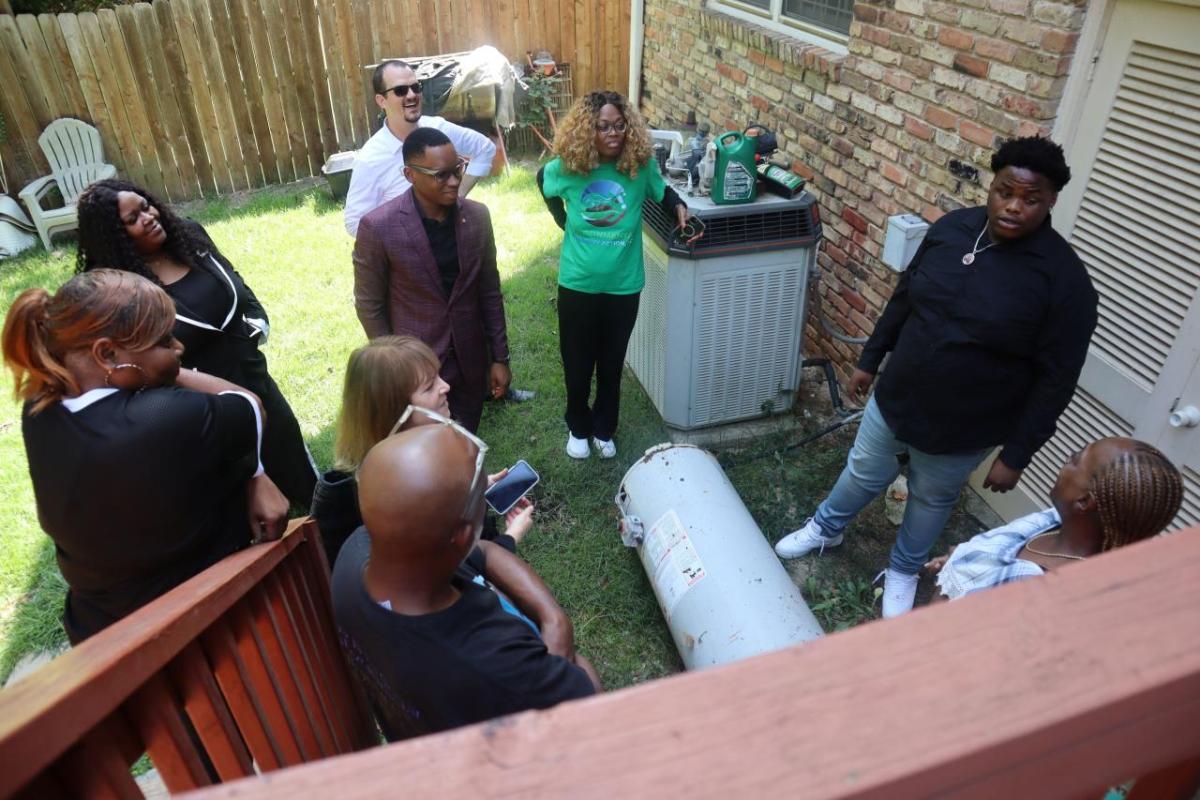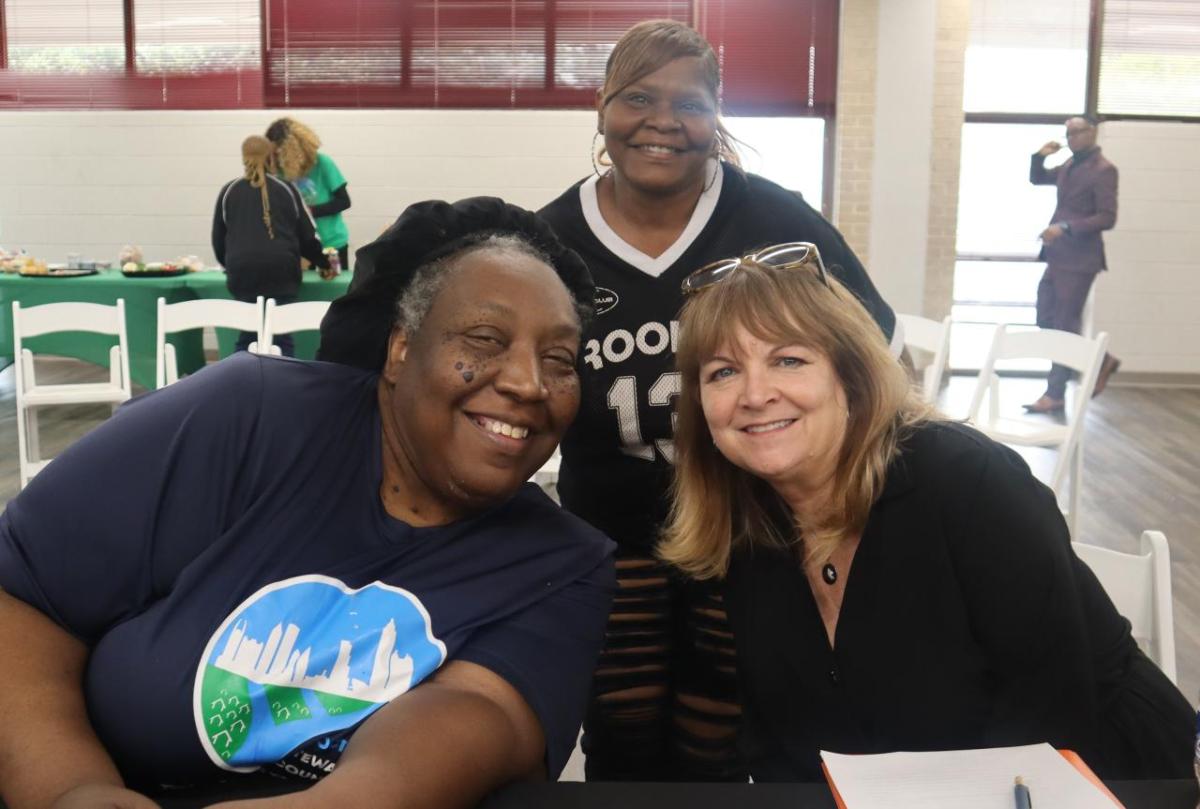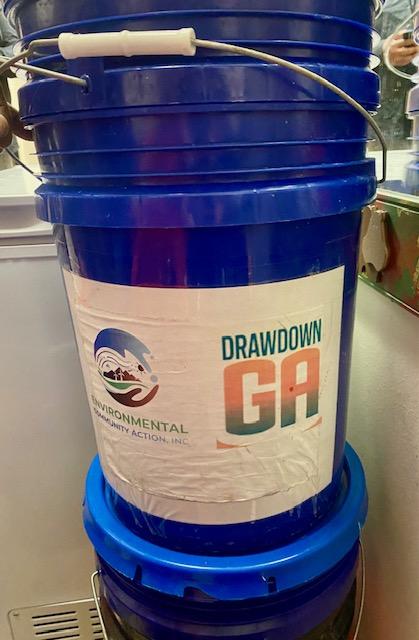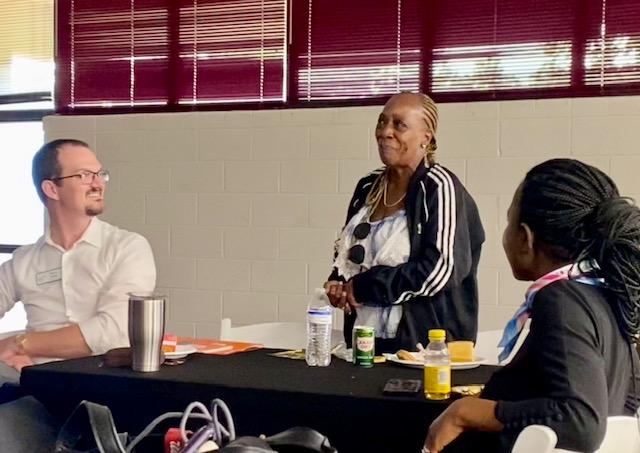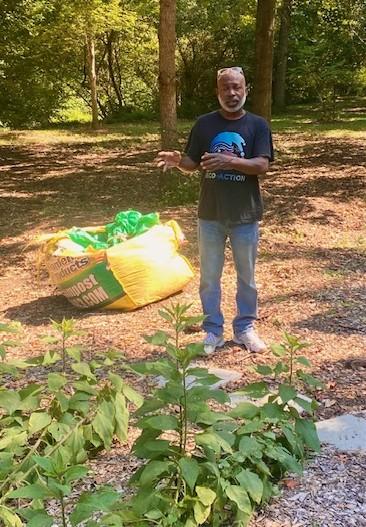ECO-Action Is Reducing Energy Burdens and Optimizing Food Waste Diversion in Atlanta
Drawdown Georgia Climate Solutions & Equity Grants in Action
In 2024, Environmental Community Action, Inc. (ECO-Action) received a two-year Drawdown Georgia Climate Solutions and Equity Grant to engage community members from low-income, previously disinvested communities in Atlanta to access and participate in climate mitigation strategies to reduce energy burdens, optimize food waste diversion strategies and enhance their quality of life with ecological awareness, education and benefits.
Over the past two years, the grant has enabled ECO-Action to collaborate with residents and leaders in Peoplestown (South Atlanta), Intrenchment Creek (Southeast Atlanta) and Proctor Creek (Northwest Atlanta) to offer monthly community-wide training on issues where climate change and health intersect.
They've partnered with community garden leaders to collect food scraps and establish free neighborhood-based composting programs in multiple neighborhoods across Atlanta. They've trained young adults and other community members on weatherization techniques to improve energy efficiency and reduce energy burdens in aging housing stock, and they've educated residents on issues and vulnerabilities at the intersection of climate and environmental justice.
Through monthly gatherings in their own communities, ECO-Action is empowering Atlanta residents to recognize issues and take action. Some of the activities residents have engaged in include planting trees where urban deforestation has occurred, reducing food waste sent to area landfills, and gaining insight into mitigating heat island effects.
A multigenerational approach has been successful for the ECO-Action team as they've trained young adults from the local communities to weatherize the homes of seniors and others in the community that they might not otherwise interact with. They're not just sharing knowledge and improved thermal comfort; they're forging lasting relationships.
The ECO-Action staff and volunteers recently took funders on a tour of multiple locations in their targeted neighborhoods, exemplifying the grant in action. Some examples included:
Grove Park Community Gardens - This garden included raised beds and fruit trees maintained by community members. The site is equipped with a shed, gardening tools and a central compost collection area where residents can take their food scraps. They’re reducing greenhouse gas emissions and providing feedstock for compost that is processed locally at Truly Living Well Center for Natural Urban Agriculture. Finished compost is provided back to the community garden and to highly engaged residents who regularly contribute their kitchen scraps.
Parather-Williams Home in Collier Heights - Ms. Catherine Parather-Williams is a member of the ECO-Action Weatherization Team, and she participates in the household composting program. She has also been the recipient of some weatherization work at her own home. Weatherization interns demonstrated the weatherization upgrades that were made there, sealing cracks and ductwork, installing new dryer vents, replacing filters, and adding insulation.
When asked if she noticed a difference, Ms. Parather-Williams said, “I sleep a lot better at night, it’s more comfortable.” The compost she receives from ECO-Action is used in her front porch container garden where she grows peppers, collards, tomatoes, okra, and herbs.
Rick McDevitt Youth Center in Peoplestown - This is the hub for composting efforts in the neighborhoods of the Intrenchment Creek Watershed, and a portion of the grant was used to make weatherization upgrades to the Center.
The funders had a chance to hear from Donna Stephens, program manager for the Proctor Creek neighborhoods. Ms. Stephens reported that the Proctor Creek team continues to run educational sessions on composting, as well as supporting a cohort of youth ambassadors to recruit community members to participate in the weatherization and composting programs. Between March and August of 2025, neighbors in the Proctor Creek Watershed collected roughly 1,500 lbs of compostable materials.
George Epps, program manager for the Drawdown Georgia efforts in the Peoplestown and Intrenchment Creek neighborhoods also reported great success with the program. Mr. Epps is responsible for picking-up the food scraps at a central point, delivering them to Truly Living Well, and redistributing the collection buckets. Between March and August, Intrenchment Creek residents collected roughly 4,500 lbs of compostable materials, thereby diverting them from landfill, and helping avert the associated methane emissions.
Neighbors in the Intrenchment Creek community are also focused on developing intergenerational learning via spring and fall break workshops on weatherization, composting, and urban gardening. The community has also partnered with Pike Nurseries and Trees Atlanta to plant fruit trees in the Peoplestown and the Intrenchment Creek watershed to help address heat island effects from previous urban deforestation.
The weatherization interns presented on their ongoing work after the tour. They participated in training at Southface Institute, learning how to patch and apply mastic and foam to seal gaps, and how to safely construct scaffolding in attics to support insulation work. The Rick McDevitt Youth Center, Little Five Points Community Center, and 12 residents’ homes received a variety of weatherization improvements during the summer.
About the Funders:
ECO-Action’s 2024-25 Drawdown Georgia Climate Solutions & Equity Grant was supported by a funding cohort that included Atticus Fund, the R. Howard Dobbs, Jr. Foundation and its Dobbs Fund, Ghanta Family Foundation, The Ray C. Anderson Foundation, Reilly Family Fund, Tull Charitable Foundation and The Wilbur & Hilda Glenn Family Foundation.
About ECO-Action:
Environmental Community Action, Inc. (ECO-Action) helps communities organize to confront environmental health threats, and to strengthen & facilitate participation of communities in preventing and resolving such threats. ECO-Action serves the general population, with special focus on assisting residents of vulnerable communities – most often rural residents, people with limited formal education, those with few resources, women, and people of color. ECO-Action’s work is based on the intersection of three things – threats to human health, environmental degradation and social injustice.

